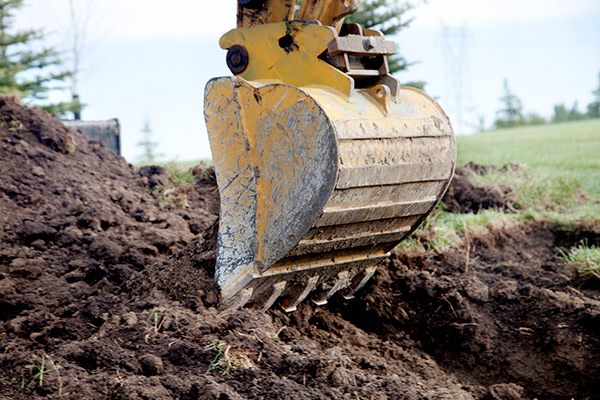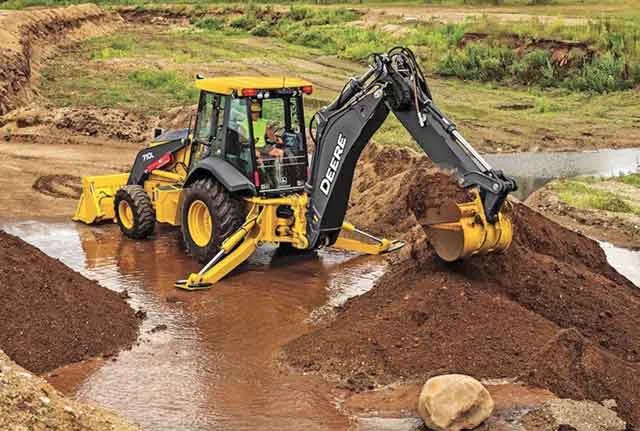Excavating Ohio - Leading Excavation Contractors for Ohio Projects
Excavating Ohio - Leading Excavation Contractors for Ohio Projects
Blog Article
Comprehensive Excavation Approaches: Grasping the Fundamentals for Success
The mindful preparation, precise execution, and meticulous interest to information required in excavation jobs demand a thorough approach that encompasses different essential aspects. The real mastery exists not just in recognizing these basics however in flawlessly integrating them to browse the intricacies of excavation projects with finesse.
Recognizing Excavation Job Planning

Effective excavation jobs are improved the foundation of careful and detailed planning. The initial phase of any kind of excavation task is the planning stage, where important choices are made that can considerably affect the end result of the project. Throughout this stage, it is important to gather all relevant information about the website, including topographical surveys, dirt structure, and any prospective risks that might exist. Recognizing the job budget, timeline, and scope restrictions is critical for producing a comprehensive excavation plan that guarantees the task's success.
One secret element of excavation job preparation is the advancement of a thorough timeline that outlines the sequence of activities, milestones, and due dates. This timeline serves as a roadmap for the job team, permitting them to track progression and make necessary adjustments to ensure the job remains on routine. Additionally, a well-defined spending plan that accounts for all expenses, consisting of devices leasing, labor expenses, and materials, is necessary for preventing cost overruns and hold-ups. By very carefully considering all these elements throughout the drawing board, excavation tasks can be executed successfully and efficiently, leading to effective results.
Soil Evaluation and Website Examination
Performing thorough soil evaluation and website evaluation is a crucial action in the preparation phase of any excavation task. Soil evaluation involves figuring out the composition, structure, and buildings of the dirt at the excavation site. This details is vital for recognizing the dirt's bearing ability, moisture material, and potential for erosion, which are essential consider identifying the excavation techniques and devices needed for the job.
Site analysis surpasses dirt evaluation and includes a more comprehensive assessment of the overall website conditions. This evaluation consists of determining any kind of prospective dangers, such as underground utilities, environmental problems, or unsteady surface, that can impact the excavation process. By completely examining the website, job supervisors can create reliable excavation methods that focus on security, performance, and environmental management.
Utilizing innovative technologies like ground-penetrating radar, dirt tasting, and drone studies can enhance the accuracy and efficiency of dirt evaluation and website examination. Investing time and resources in these initial steps can ultimately save time and avoid pricey hold-ups or issues during the excavation process.
Tools Selection and Usage
Efficient excavation tasks count heavily on critical devices option and utilization to ensure ideal performance and productivity. Selecting the right devices for the job is essential in making best use of performance and decreasing downtime. Elements such as the kind of dirt, deepness of excavation, and job range play a considerable role in establishing company website the most appropriate tools for the job available.

In addition to choosing the appropriate devices, appropriate application is vital to project success. Operators should be educated to deal with the tools safely and successfully - lancaster excavation. Regular maintenance checks and prompt repairs aid avoid breakdowns and make sure constant performance throughout the task
Precaution and Regulations Compliance
In the world of excavation projects, focusing on precaution and compliance with laws is extremely important to ensuring a secure and legitimately audio functional environment. Precaution encompass a variety of methods, consisting of conducting thorough website analyses, executing appropriate signage and obstacles, and giving ample safety and security training for all personnel associated with the excavation process. Adherence to laws, such as OSHA needs in the USA, ensures that the excavation job fulfills the needed requirements to shield employees, spectators, and the surrounding atmosphere.

Tracking Development and Adjusting Techniques
Just how can forecast supervisors successfully track the improvement of excavation tasks and adapt their methods as necessary to enhance outcomes? Surveillance progression is vital for guaranteeing that more info here excavation projects remain on track and fulfill target dates. Job managers can utilize numerous tools and techniques to track development, such as everyday progression records, routine website assessments, and progressed monitoring technologies like drones and GPS tracking systems. By continually keeping an eye on the job's development, supervisors can determine any kind of prospective delays or concerns early and take aggressive steps to address them.

Final Thought
In conclusion, understanding the basics of extensive excavation methods is necessary for the success of any kind of job. By recognizing task preparation, examining dirt and site conditions, selecting proper devices, adhering to safety laws, and keeping an eye on progress, job managers can ensure a reliable and smooth excavation process. Carrying out these approaches will bring about successful results and lessen possible threats or troubles during the excavation project.
The initial phase of any kind of excavation project is the planning phase, where important choices are made that can substantially affect the outcome of the project. Comprehending the task timeline, extent, and budget constraints is crucial for developing a comprehensive excavation strategy that guarantees the job's success.
Just how can predict supervisors successfully track the advancement of excavation projects and adapt their approaches as necessary to enhance results? By very closely monitoring progress and being ready to adapt techniques, project supervisors can improve the overall success of excavation projects.
By comprehending project preparation, evaluating dirt and website conditions, choosing suitable tools, conforming with security regulations, and keeping an eye on development, job supervisors can make certain a efficient and smooth excavation process.
Report this page